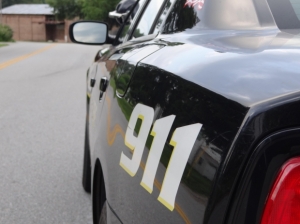
By Eric Jones
On April 28, 2015, the Fourth Circuit issued a published opinion in the criminal case United States v. Braxton. The Circuit Court held that Fed. R. Crim. P. 11(c)(1) explicitly prohibits district courts from participating in discussions about plea agreements in any way. Because the United States District Court for the District of Maryland impermissibly made repeated comments about the benefits of accepting a guilty plea to Braxton just before he elected to plead guilty, the Fourth Circuit vacated the proceedings and remanded for further proceedings.
Background and Proceedings Below
In 2012, Savino Braxton was charged with possession with intent to distribute one kilogram or more of heroin, in violation of 21 U.S.C. § 841(a) (2012). This charge carries a minimum ten-year sentence if convicted. Braxton, however, has a prior felony drug conviction, which allows the government to file a prior felony information that would effectively double the mandatory minimum to twenty years’ imprisonment. Braxton’s court-appointed counsel repeatedly expressed concern that if he did not plead guilty, the prosecutor would file a prior felony information. Braxton nevertheless insisted that he desired to go to trial, where he planned to test the validity of the weight of the drugs. On November 19, 2012, the government elected to file a prior felony information and establish a minimum twenty-year sentence if Braxton was found guilty at trial. Prior to trial, the government formally offered Braxton a plea agreement wherein he would face a minimum of ten years and a maximum of fifteen. The morning the trial began, the court dutifully memorialized for the record that Braxton had received and rejected the plea agreement, and wished to proceed to trial. The district court went on to admonish Braxton repeatedly for electing to forgo the plea agreement, saying “I am not favorably inclined towards having you go to trial and trigger a mandatory minimum of 20 years, as opposed to a plea offer that’s down in the 10 to 15 year range in terms of years of your life” and compared going to trial to “put[ting] [your] head in a buzz saw that makes absolutely no sense.” The district court then ordered a ten-minute recess, advising Braxton to “talk to your lawyer.” After that recess, the district court again admonished Braxton that a “defendant shouldn’t put his head in a vice [sic] and face a catastrophic result just over a dispute over drug quantity. That’s the point.” The court then dismissed for lunch. During that lunch, Braxton changed his mind and elected to plead guilty. Braxton later attempted to withdraw his guilty plea, arguing it had been involuntary. Nevertheless, Braxton was sentenced to eleven and one-half years, and this appeal followed.
Federal Rule of Criminal Procedure 11(c)(1)
Under Fed. R. Crim. P. 11(c)(1), an “attorney for the government and the defendant’s attorney…may discuss and reach a plea agreement. The court must not participate in these discussions.” As the Fourth Circuit explained, this prohibition serves three primary goals. First, it diminishes the possibility of judicial coercion of a guilty plea. Second, it protects against unfairness and partiality in the judicial process. Third, it eliminates the impression that the judge is an advocate for the agreement and not a neutral arbiter. Although well-intentioned, the district court repeatedly suggested that the plea agreement was in Braxton’s best interests, which is in direct conflict with this rule. Furthermore, the Fourth Circuit explained that the close proximity in time between when the comments were made and when the plea was accepted heightened the probability that Braxton was unduly influenced by the district court.
Braxton’s Statement That the Plea Was Given Voluntarily Was Insufficient
The Fourth Circuit was unconvinced by the government’s argument that Braxton’s guilty plea was voluntary. Although the district court asked if Braxton felt “forced or threatened or pushed” to accept the plea agreement and Braxton replied “No, sir,” the Fourth Circuit held that his response was inconclusive. The district court created “an unacceptable risk” that Braxton involuntarily entered his guilty plea in order to avoid offending the court, and thus his flat statement that he was not coerced was ineffective.
The District Court Cannot Remark Upon the Advantages of a Plea Agreement
The government also argued that, under Missouri v. Frye, the court must remark upon the advantages of the plea agreement and the disadvantages of trial in order to ascertain whether the defendant’s understanding of the decision is sufficient. As the Fourth Circuit explained, however, the district court’s duties under Frye extend only to memorializing the terms of the plea agreement, and ensuring that the defendant understands them. Thus, it was improper for the district court to advocate for the plea agreement at all, and the requirements of Frye do not make the comments of the district court in this case permissible.
Conclusion
The Fourth Circuit held that, although it did not appear that the district court intended to coerce Braxton, there was nevertheless a reasonable risk that Braxton had been influenced by the court. Thus, because the district court’s plain error affected Braxton’s substantial rights, the Fourth Circuit vacated Braxton’s sentence and guilty plea, and remanded for further proceedings in front of a different judge.


